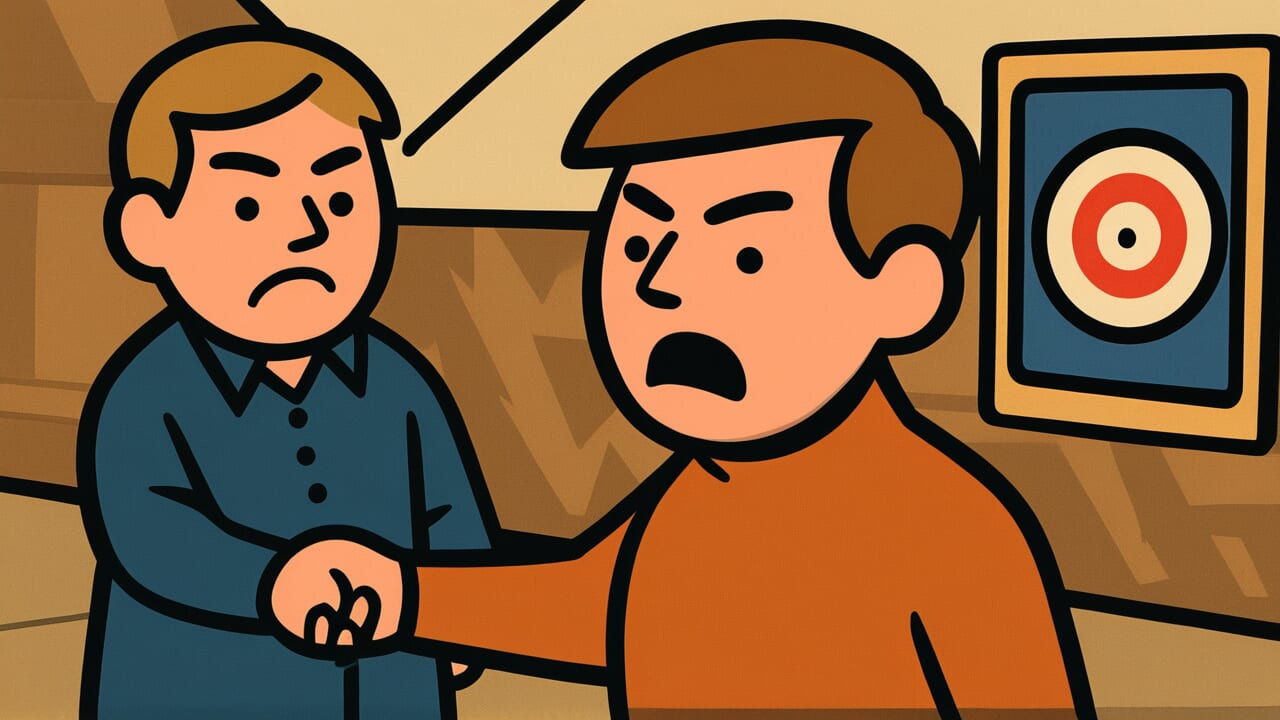How to Read “Think of anger as your enemy”
Ikari wa teki to omoe
Meaning of “Think of anger as your enemy”
This proverb teaches that anger harms you, so you should guard against it like an enemy and control it. When you give in to anger, you lose the ability to think clearly.
This leads to mistakes and conflicts you could have avoided. You say things you shouldn’t say and do things you can’t take back. In the end, you suffer the greatest damage yourself.
People use this proverb when they need to control their emotions in tense situations. They also use it to warn someone who’s about to act out of anger.
Even in modern society, momentary anger can derail your life. Think of social media meltdowns or workplace conflicts. The proverb doesn’t say anger itself is bad.
It teaches that anger can become your enemy and hurt you. The key is recognizing this danger and dealing with anger appropriately.
Origin and Etymology
This proverb is widely known as a teaching from Tokugawa Ieyasu in the early Edo period. Ieyasu left behind final instructions called “Toshogu Goikun” in his later years.
These instructions include the famous teaching that begins “A person’s life is like carrying a heavy burden down a long road.” The phrase “Think of anger as your enemy” appears in one section of these teachings.
Ieyasu experienced countless hardships from his youth. Allies betrayed him at times. He lost family members and tasted bitter suffering.
Yet he never let emotions control him. He kept making calm, rational decisions. This approach eventually led him to unify Japan. His experiences taught him how anger clouds judgment and creates danger.
During the Warring States period, life and death struggles were daily reality. A single angry mistake could cost not just your life but the lives of your retainers and people.
Through direct experience, Ieyasu realized that anger was the greatest enemy. He left this teaching for future generations. He wanted to spare others from repeating the same mistakes.
Usage Examples
- I remembered “Think of anger as your enemy” at that moment, held back, and I’m glad I did
- “Think of anger as your enemy” is so true—nothing makes you regret more than an email sent in anger
Universal Wisdom
Humans are emotional creatures. We feel joy, sadness, and anger. Among these emotions, anger has special power. It can instantly take over our minds and steal away our reason.
Why do people get angry? We feel anger when we’re hurt, when our sense of justice is violated, or when we’re trying to protect something precious. At its root, anger hides an instinct to protect ourselves.
But here’s the irony. The anger that’s supposed to protect us often ends up hurting us most. Words spoken in anger destroy relationships with people we care about.
Actions taken in anger create deep regret later. It’s almost like attacking yourself. That’s why our ancestors called anger an “enemy.”
This proverb has been passed down for hundreds of years because humans are easily controlled by emotions. This is a timeless truth. No matter how advanced civilization becomes, no matter how much knowledge we gain, the battle between anger and reason inside us stays the same.
This proverb quietly but powerfully teaches us how difficult and important it is to win that battle.
When AI Hears This
When anger occurs, the human psychological state becomes a “closed system” in thermodynamic terms. It stops accepting calm information from outside. Energy runs wild internally.
According to the second law of thermodynamics, entropy always increases in closed systems. Disorder inevitably grows. Ice in a cup melts into water, then evaporates. Order only moves toward collapse.
Anger’s energy follows the same principle. It might start as a single point: “I can’t forgive what they said.” But over time it spreads chaotically.
“Come to think of it, this happened before too.” “Everyone’s against me.” The heat of emotion pulls in surrounding memories and thoughts. It destroys the order of the entire system. This follows physical laws you cannot avoid.
What’s more important is irreversibility. Melted ice doesn’t naturally return to its frozen state. Anger works the same way. Words spoken once, relationships broken—they require enormous energy to repair.
The cost of repairing order after anger is far higher than the cost of staying calm. You should think of anger as your enemy because it follows physical laws that inevitably collapse your system.
This isn’t about morality. It’s thermodynamic self-defense.
Lessons for Today
For those of us living today, this proverb holds special meaning. We connect instantly with the world through social media. One email can determine important relationships.
That’s why momentary anger can have immeasurable impact. The few seconds before you hit send, the single breath before you speak—these can dramatically change your life.
The proverb doesn’t teach that feeling anger is bad. It teaches that being controlled by anger is dangerous. When you feel anger, treat it as a warning signal that an enemy has appeared.
Take a deep breath. Leave the situation. Sleep on it overnight. These small strategies become shields that protect you.
What matters is gaining wisdom to handle anger well. You don’t need to blame yourself for feeling angry. Just have the courage to pause before anger controls your actions.
When you can do this, you’re holding the reins of your life firmly in your own hands.



Comments